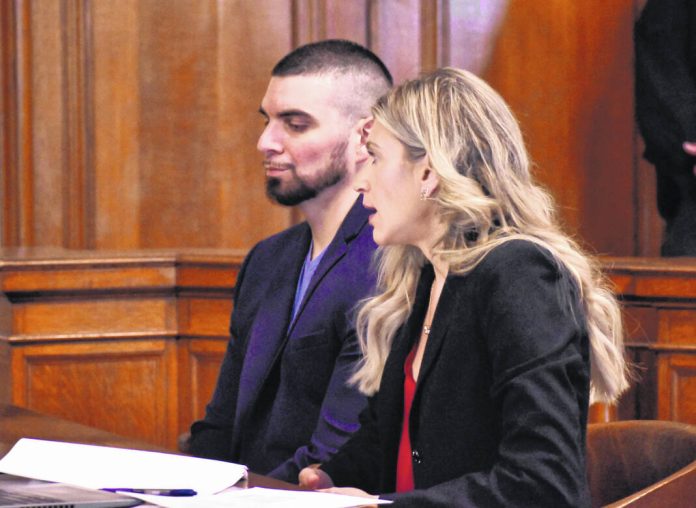OTTAWA — Attorneys representing Travis Soto — the Napoleon man whose case involving the 2006 death of his son has made a circuitous route from Putnam County to the U.S. Supreme Court and back again — now believe their client finds himself in a “Catch-22 position” as the State of Ohio prepares to put him on trial for murder.
A motion filed last month in Putnam County Common Pleas Court by attorneys from the Ohio Public Defenders Office asked Judge Keith Schierloh to issue a protective order surrounding evidence the defense intends to submit in support of an earlier motion to dismiss Soto’s case altogether on double jeopardy grounds.
Assistant State Public Defender Kandra Roberts on Thursday argued that the motion for a protection order is directly linked to an earlier defense motion which seeks the dismissal of all charges in the case based on a plea deal accepted by Soto in 2006.
A timeline of events
Soto, 37, was indicted in March 2006 on charges of involuntary manslaughter and child endangering in the death of his son, Julio, in an all-terrain vehicle mishap. Soto entered into a plea agreement with prosecutors that called for him to plead guilty to child endangering in exchange for the state’s dismissal of the manslaughter count. He was sentenced to a five-year prison term. Soto served all of the sentence and was released from prison in 2011.
Five years later, he walked into the Putnam County Sheriff’s Office and admitted he had actually beaten his son to death. He was indicted on new charges of aggravated murder and other counts. Soto’s attorneys filed a motion to dismiss all charges on double-jeopardy grounds, which prevents individuals from being tried for the same crime twice.
The trial court denied the motion, and that decision was appealed, winding its way through the Ohio Third District Court of Appeals to the Ohio Supreme Court, which held that because the involuntary manslaughter charge was dismissed as part of a plea bargain before a jury was empanelled, jeopardy never attached to that charge.
The U.S. Supreme Court declined to hear the case, but the Sixth Circuit of the U.S. Court of Appeals in Cincinnati agreed with the Ohio Supreme Court that the double-jeopardy clause of the U.S. Constitution does not bar Soto from facing the current charges. The case was sent back to Putnam County Common Pleas Court.
And now…
The public defenders in their motion for dismissal of the charges against Soto cited the 1993 case of the State of Ohio v. Carpenter, in which the Supreme Court ruled the state “cannot indict a defendant for murder after the court has accepted a negotiated guilty plea to a lesser offense.”
Roberts on Thursday said the defense team “finds itself in the unique position” of being forced to argue that the state had ample evidence and opportunity to seek a murder charge against Soto in 2006 and elected not to do so. In order to support its own position that the reintroduction of a murder charge amounts to double jeopardy, Robert told the judge, the defense team could be forced to rely on evidence that could ultimately be used by prosecutors against Soto should the matter proceed to trial.
The motion for a protective order is intended to preserve Soto’s constitutional rights, Roberts said.
Assistant Putnam County Prosecuting Attorney Todd Schroeder said current case law and the local court’s rules of evidence are sufficient to protect Soto’s rights at trial and argued that no protective order is necessary. He also noted that Soto lied repeatedly about the circumstances behind his son’s death.
The state’s formal response to the motion to dismiss alleged that Soto entered into the 2006 plea agreement “with the fingers of one hand crossed behind his back.”
Schierloh agreed to hear additional, specific arguments behind closed doors at a later date.







